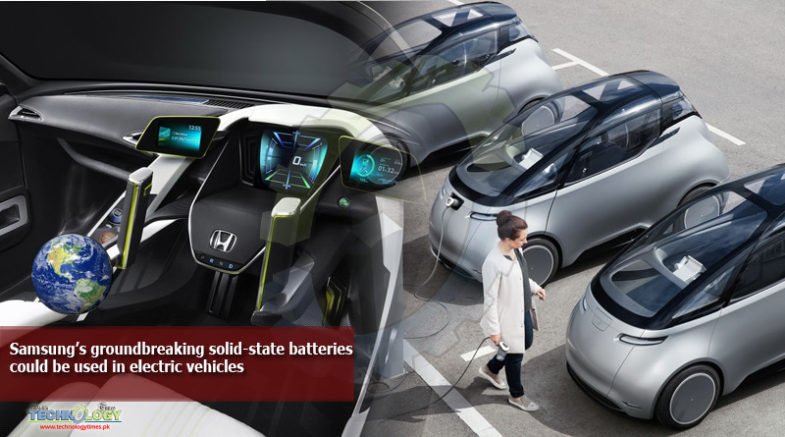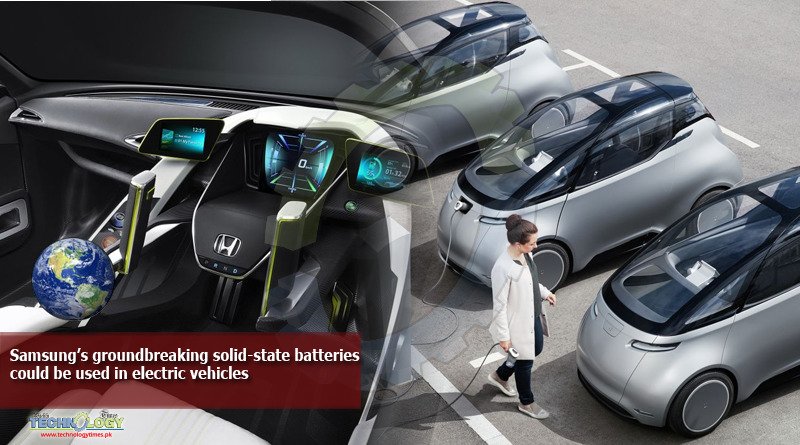Samsung has announced that it has presented a study on high-performance, all-solid-state batteries to Nature Energy, one of the world’s leading scientific journals. Batteries based on the company’s ground-breaking technology could be used in electric vehicles. Unlike conventional lithium-ion batteries that use liquid electrolytes, Samsung’s technology uses solid electrolytes.

Solid-state batteries can pack more capacity in the same footprint when compared to lithium-ion batteries. However, lithium metal anodes that are used in solid-state are prone to develop dendrites, which reduce a battery’s lifespan and safety. To counter this, Samsung’s research teams at Samsung Advanced Institute of Technology (SAIT) and Samsung R&D Institute Japan (SRJ) have proposed the use of silver-carbon (Ag-C) composite layer as the anode.
The use of silver-carbon anode has resulted in enhanced safety, higher capacity, and longer lifespan of solid-state batteries. Thanks to its smaller size (5µm), the silver-carbon anode also allowed researchers to pack a higher energy density (up to 900Wh/L) in the same size or make the batteries 50% smaller compared to conventional lithium-ion batteries.
Samsung claims that its new technology would allow electric vehicles to travel up to 800km on a single charge and have a cycle life of over 1,000 charges. It seems that the South Korean smartphone giant is pretty serious about making its mark in the electric vehicle market in the coming years. It has already acquired HARMAN for its connected car technology.
Dongmin Im, Master at SAIT’s Next Generation Battery Lab and the project’s leader said, “The product of this study could be a seed technology for safer, high-performance of the future. Going forward, we will continue to develop and refine all-solid-state battery materials and manufacturing technologies to help take EV battery innovation to the next level.”
Courtsy: Refferal link
